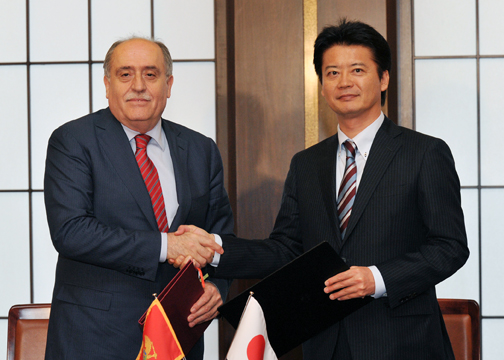History is filled with tales of epic battles, diplomatic twists, and unexpected alliances, but few stories are as quietly peculiar as the state of war that technically existed between Montenegro and Japan for over 200 years.
This strange historical anecdote is not about violent conflict or longstanding enmity, it is a tale born of oversight, geography, and the passage of time.
Though the war never involved a single battle between the two nations, it nevertheless persisted in the background of global affairs until it was finally addressed in the 21st century.
A Forgotten War Declaration

To understand how this peculiar situation arose, one must go back to the early 20th century. The Russo-Japanese War, fought between 1904 and 1905, was a significant conflict where the Japanese Empire clashed with Tsarist Russia over territorial ambitions.
Montenegro, a small Balkan kingdom at the time, was a staunch ally of Russia due to deep Slavic and Orthodox Christian ties. Motivated by loyalty rather than strategic interest, Montenegro declared war on Japan in 1905 in support of Russia.
However, the Montenegrin declaration of war was largely symbolic. The country did not send troops, nor did it have the naval power or geographic reach to participate meaningfully in a conflict that was happening on the other side of the world.
The gesture was more about diplomacy and solidarity than military action. Japan, for its part, apparently did not consider Montenegro’s declaration significant enough to formally acknowledge it.
As a result, no peace treaty was signed between the two nations after the war ended with the Treaty of Portsmouth in September 1905.
Nobody Remembered the War

The peculiar consequence of Montenegro’s symbolic involvement in the war was that no official conclusion was ever reached between it and Japan. The other major players, the Russians and Japanese, made peace, but Montenegro was left out of the formal process.
This meant that, technically speaking, the state of war persisted. Over the decades, the situation became an oddity, acknowledged by few, remembered by fewer, and felt by none.
There were no military actions, no hostile policies, and no impact on either country's foreign relations.
As Montenegro underwent a series of political transformations, becoming part of the Kingdom of Serbs, Croats and Slovenes, later Yugoslavia, and eventually regaining its independence in 2006, the “war” with Japan remained buried in the obscure margins of diplomatic history.
Rediscovery

The technical state of war between Montenegro and Japan might have remained a forgotten relic indefinitely, if not for a renewed interest in historical oddities and symbolic diplomacy.
In 2006, shortly after Montenegro voted for independence in a national referendum, the issue resurfaced in international media. The curiosity of Montenegro’s century-old "war" with Japan captured public imagination.
Shortly thereafter, in a spirit of goodwill and diplomatic clarity, the two nations agreed to formally normalize relations.
Though there was never an official peace treaty signed in the traditional sense, diplomatic representatives from both countries acknowledged the outdated situation and symbolically declared the end of hostilities.
Montenegro's then-Foreign Minister Miodrag Vlahović even joked that the two countries could now be considered at peace after their “long” war, underscoring the good-natured and absurd character of the affair.
A Symbol of Changing Times

The story of Montenegro and Japan’s 200-year war is not one of violence or hatred, but of the sometimes farcical nature of international politics.
It serves as a reminder of how war can be a technicality, and how bureaucratic processes, especially in an age before instant global communication, can leave loose ends dangling for decades or even centuries.
In today’s interconnected world, such a situation is unlikely to recur. Modern diplomacy is faster, more transparent, and better documented.
Yet this odd historical footnote also points to the human element in international affairs, how gestures, alliances, and paperwork can echo through time in unexpected ways.
The peaceful resolution of this strange “war” reflects not only a newfound clarity in Montenegro’s international status but also the warm and friendly relations between two nations that can share a laugh over the quirks of history.



















